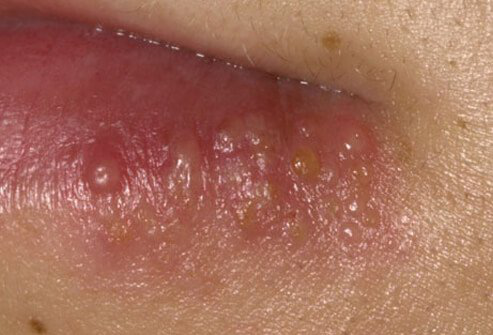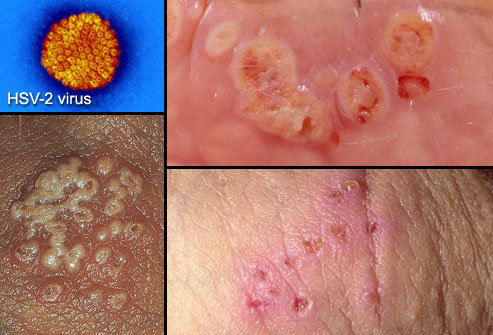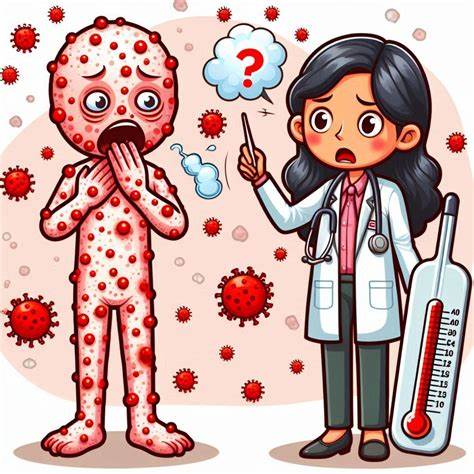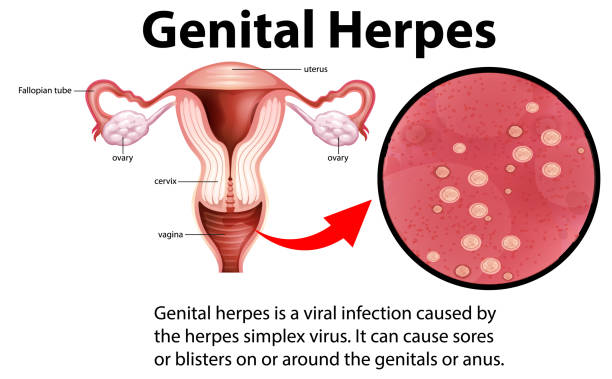Herpes Simplex 1 Virus (Oral Herpes)
Cold sores or "fever blisters" on the lips are a sign of herpes virus infection, usually caused by the type of herpes virus known as human herpes virus 1 or HHV-1.
HHV-1 is usually not considered to be an STD.
Transmission: It can be spread through kissing or household contact. It can also spread to the genitals.

Herpes Simplex 1 (Oral Herpes) Symptoms
- Itching of the lips or skin around the mouth
- Burning near the lips or mouth area
- Tingling near the lips or mouth area
- Sore throat
- Fever
- Swollen glands
- Painful swallowing
- A rash may form on your gums, lips, mouth, or throat
- Symptoms usually appear 1-3 weeks after the first infection. When symptoms return, they are typically milder.
Herpes Simplex 2 Virus (Genital Herpes) (STD)
Causes: In contrast to HHV-1, most genital herpes infections are caused by a different virus known as HHV-2.
Mode of transmission: It is spread through direct contact and is considered to be an STD. More than 87% of those infected with genital herpes are unaware of their infection due to very mild or non-existent symptoms.

Herpes Simplex 2 (Genital Herpes) Symptoms
- Painful, fluid-filled blisters and crusted sores on the genital area, buttocks, thighs, or anus.
- Mild tingling or shooting pain in the legs, hips, or buttocks may occur hours to days before a genital herpes outbreak.
- After the first infection, less severe outbreaks are common in the first year. Outbreaks tend to decrease over time, though the infection may stay in the body indefinitely.
- The infection can spread to the lips through oral contact. As with HHV-1, medications can reduce the severity of the condition, but there is no cure.
Genital herpes is a sexually transmitted infection (STI) that can be transmitted through vaginal, anal, and oral sex.
Here’s what you need to know about it in the context of the United Kingdom:
- Prevalence:
- In 2022, there were 24,910 new diagnoses of genital herpes made in sexual health clinics in the UK. This represents a 5.3% increase compared to the previous year (21,892 diagnoses in 2021). However, these figures are still lower than the 34,464 diagnoses reported in 2019.
- Symptoms:
- Small blisters that burst and leave red, open sores around the genitals, anus, thighs, or bottom.
- Tingling, burning, or itching around the genital area.
- Pain during urination.
- Unusual discharge from the genitals.
- Symptoms may appear weeks or even years after infection.
- Treatment::
- There is no cure for genital herpes, but symptoms often clear up on their own.
- Antiviral medicine can help manage symptoms and prevent outbreaks.
- First-time treatment:
- Antiviral medicine to stop symptoms from worsening (start within 5 days of symptoms appearing).
- Cream for pain relief.
- Recurrent outbreaks:
- Antiviral medicine can shorten an outbreak if taken promptly.
- Recurrent outbreaks are usually milder than the first episode.
- Some individuals may benefit from long-term antiviral treatment if they experience frequent outbreaks.
Remember, seeking advice from a sexual health clinic is crucial if you suspect genital herpes. They can provide accurate diagnoses and recommend appropriate treatment options.




















Comments